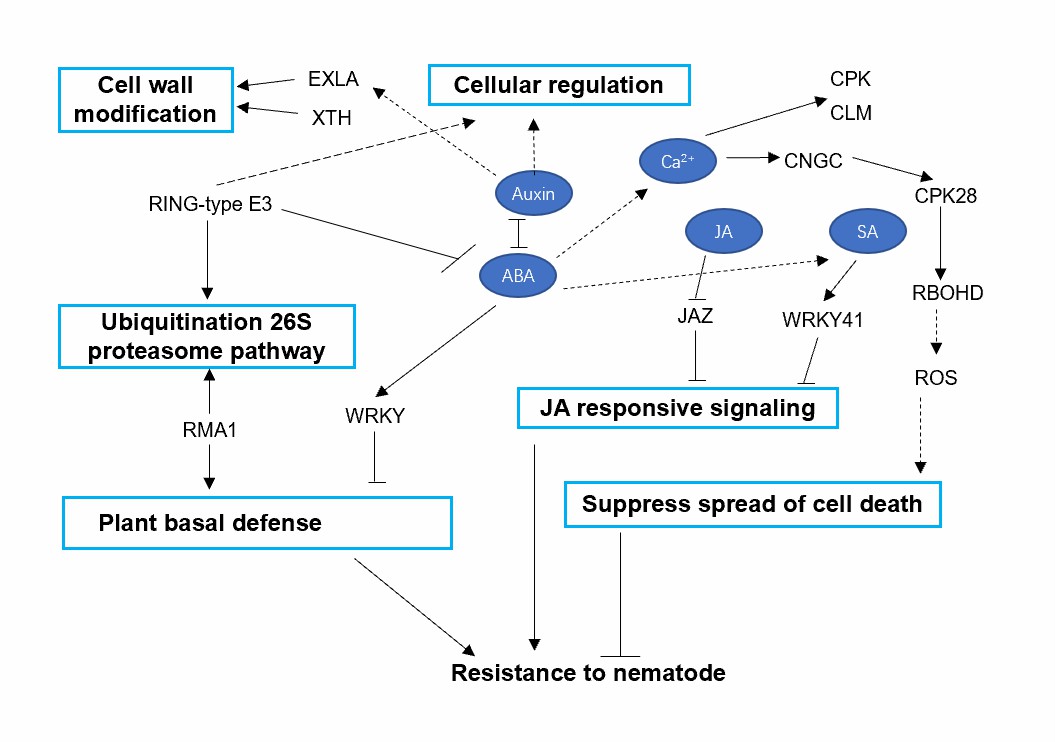Mechanism Analysis of Regulating Host-Induced Immune Response by Effector Proteins
Plant nematodes are devastating pests that cause high-yield loss in agriculture. Plant nematodes secrete various effector molecules, which play an important role in parasitism. They secrete various plant immunosuppressants, enzyme inhibitors, and other proteins needed to establish feeding sites. Except for a few effector proteins that can stimulate plant immune response, more effector proteins have been found to suppress or overcome host immune response, which is conducive to the infection and parasitism of plant nematodes.
Lifeasible provides mechanism analysis of regulating host-induced immune response by effector proteins to help our customers worldwide in plant science research. Our platform is equipped with cutting-edge facilities and professional experts to support research. Here, we provide various services according to customers’ demands.
Mechanism Analysis of Effector Proteins Inducing Host Immune Response
- According to the gene-to-gene theory, pathogenic nematodes have a corresponding non-toxic gene for the resistance gene of any host. Only when the nematodes carrying non-toxic genes infect the host plants carrying corresponding resistance genes can the plants be induced to develop resistance, thus causing the effector-triggered immunity (ETI) resistance reaction characterized by hypersensitivity response (HR).
- Lifeasible provides an analysis of nematode avirulent genes, including SPRYSSEC-19, Gr-VAP1, and Gp-RBP1 in potato sporocyst nematodes, MAP-1.2 and Cg-1 in the south of root-knot nematodes, Hg-CM-1 in soybean sporocyst nematodes and 4D09 in beet sporocyst nematodes, which can be recognized by plant resistance genes and trigger programmed cell death.
Mechanism Analysis of Effector Proteins Inhibiting Host Immune Response
- Most effector proteins secreted by plant nematodes have been found to inhibit the host immune response, thus aiding in plant nematode infection and parasitism.
 Fig.1 Model illustrating the interplay involved in host defense responses.
Fig.1 Model illustrating the interplay involved in host defense responses.
- We provide an analysis of effector proteins secreted by south root-knot nematodes, such as Misp12, MiISE5, MiISE6 and MiSGC, MSP18, MiMIF-2, etc. These effector proteins, mainly expressed in nematodes, inhibit HR or PCD responses and significantly down-regulate the expression of defense response marker genes. In addition, some effector factors may also inhibit the expression of hormone-signaling pathway genes in plants.
- Many effector proteins that inhibit host immune response have also been found in sporocyst nematodes. We provide analysis of effector proteins, such as Ha-ANNEXIN, G16B09-Like, HgGLAND18, HaVAP1 / 2, and others. These effector proteins can inhibit the allergic necrosis reaction of cells and regulate the expression of plant defense genes.
Lifeasible provides cost-effective, high-quality, and hassle-free services to our customers worldwide. We provide our clients with direct access to our experts and prompt responses to their questions. If you are interested in our services or have any questions, please feel free to contact us or make an online inquiry.
For research or industrial raw materials, not for personal medical use!
 Fig.1 Model illustrating the interplay involved in host defense responses.
Fig.1 Model illustrating the interplay involved in host defense responses.